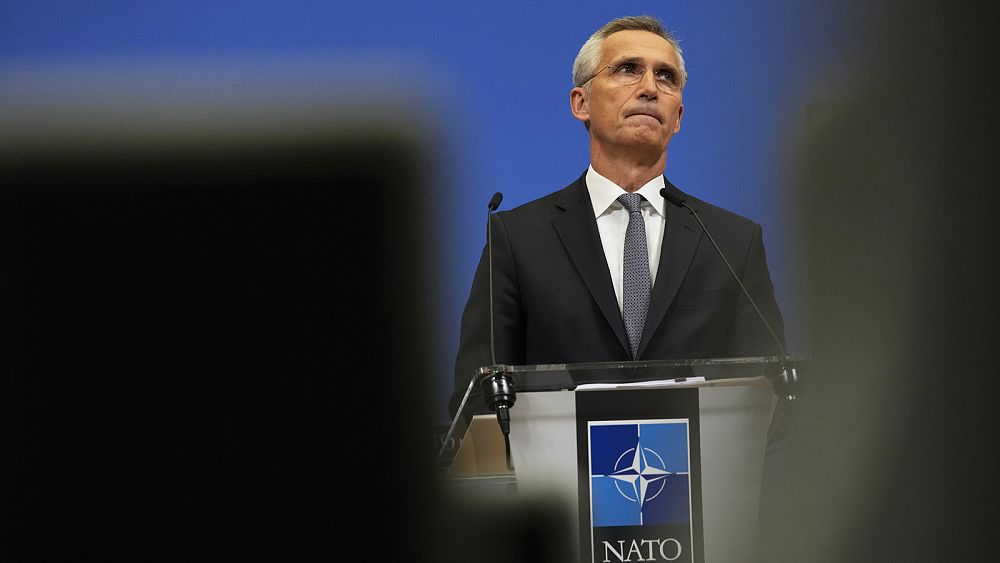
The most recent build-up of Russian troops near its border with Ukraine is “large and unusual,” according to NATO.
Earlier this month, the authorities in Kyiv claimed that about 90,000 Russian soldiers and heavy equipment including tanks were repositioned close to Ukraine, stoking fears of a possible invasion.
During a press conference with Ukraine’s foreign minister, NATO Secretary-General Jens Stoltenberg stated that the alliance remains vigilant about Russia’s latest move.
He said ”any further provocation or aggressive actions by Russia would be of serious concern” and that the Kremlin must be “transparent about its military activities”.
It comes with Moscow also accused of being involved in the migrant crisis on the border between Belarus and Poland.
Ukraine’s defence ministry says units of Russia’s 41st army have been stationed about 260 kilometres north of the border.
It claimed the Russian military was also observed in the rebel-controlled parts of Donbas in the east of Ukraine.
The war in eastern Ukraine, which began in 2014, is an ongoing conflict between the Ukrainian army and Russian-backed separatists in the Donetsk and Luhansk regions.
The seven-year war has seen more than 100,000 casualties, while around 2,5 million Ukrainians have sought refuge either in other parts of the country or abroad.
Ukraine’s foreign minister Dmytro Kuleba said: “What we see now is a deteriorating situation where Russia is demonstrating that it can quickly activate the already amassed troops and equipment and that every option, including the military one, is on the table for [the] Russian leadership.
“Russia’s military manoeuvres, the energy crisis in Europe, the dramatic use of migrants as a weapon on Poland’s and Lithuania’s borders with Belarus, and massive disinformation have to be seen as one complex set of events,” he stated, dubbing it all a part of a “hybrid war” on Europe.
NATO is the latest among Ukraine’s Western allies who have expressed concern over the recent Russian troop movement, reminiscent of a similar situation in the spring of this year.
Although Russia withdrew some of the units since then, the latest increase in numbers is the largest since the 2014 annexation of the Crimean Peninsula that gave Russia unrestricted access to the Black Sea.
Stoltenberg repeated on Monday that NATO does not accept “Russia’s illegal and illegitimate annexation of Crimea”, and called on the authorities in Moscow to end its support for militants in the Donbas area.
“All NATO allies are united in their condemnation of Russia’s behaviour,” he stated, saying that the alliance is “monitoring the situation closely”.
Since the revelations of the troop build-up came to light, the Kremlin has repeatedly stated that any troop movement with the Russian territory is its own business.
“Russia maintains troops presence on its territory wherever it deems necessary,” Kremlin spokesman Dmitry Peskov said earlier this month.










